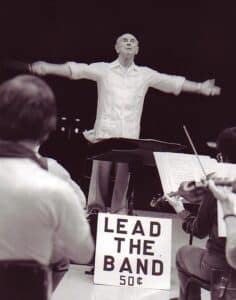Vintage shot: Telling a conductor what he’s worth
OrchestrasThis is the forbidding Erich Leinsdorf, conducting the LA Phil in the 1980s.
When he wasn’t looking, someone put the sign up and oboist David Weiss snapped this shot.
Leinsdorf was not renowned for having a sense of humour.







Comments